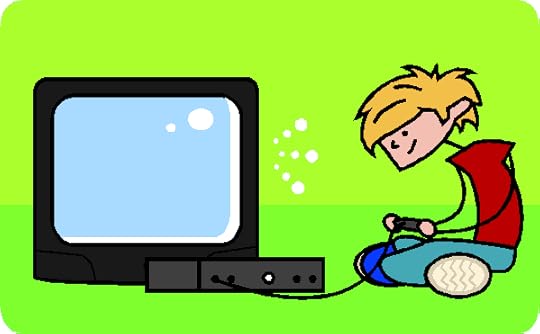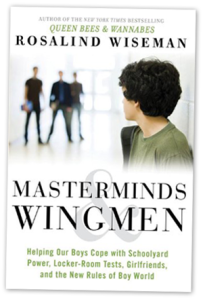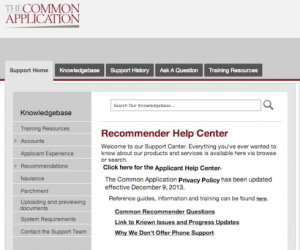Rosalind Wiseman's Blog, page 33
May 1, 2014
Family Circle: Handling Adult Bullies—At Your Job
Mean girls don’t disappear once you graduate from school. Our parenting expert, Rosalind Wiseman, received a letter from a woman struggling with a workplace bully making her 9-to-5 miserable. Here’s what happened, why it occurred and how anyone can regain their power while keeping the peace.

Q. I’m a 27-year-old woman who never learned how to handle bullies. I’m currently working with a woman who behaves not unlike a middle-school mean girl. I’ve never spoken to her (she’s refused to speak to me from the minute she started). She has successfully made me an outcast. When people realized they had no reason to dislike me, they stopped and now she’s on a campaign to do it again.
I’m her primary victim, but she’s terrorizing a few others. She usually does this by coming between the friends or even family members of the people she targets (charming them into feeling like she’s their best friend, latching on tight and then using suggestion to turn them against the target little by little). The thing is, I love my job and I love all my coworkers, but this one person is creating such a hostile environment that it’s causing me extreme stress. I tried talking to my supervisor, and he told me not to let it get to me. Please offer advice about how to end this once and for all. Thank you.
A. The answer you need begins with the very first sentence you wrote to me. Like so many adults, you never learned how to handle bullies. They had power over you when you were young and they still have power over you now.
When I work with young people, they often feel that bullies have mythological power over them, and I think that’s what is still happening to you. Look back on the way you described the situation—you are allowing this woman to make decisions about your own conduct at your place of work. You’re also making a lot of assumptions. Because you’ve never spoken to her, you’re relying on second- and third-hand information. I’m not saying she doesn’t isolate people. She clearly has been rude and unprofessional to you. What I am saying is that you bring a lot of baggage to this situation and it’s stopping you from handling things in a way where you have any control. The moment she didn’t talk to you, you responded by allowing her to set the terms of your dynamic with her.
Here’s the bottom line: Your reaction to her is compromising your professionalism. Your stress level is hurting your job effectiveness as well. For the sake of your emotional health and your career, it’s time for you to face the problem. But I’m not going to advise you to make some dramatic scene. Instead, take a step that looks small but isn’t. Have a quick face-to-face conversation with her in which you say something like, “This is uncomfortable to admit, but for some reason we haven’t talked and it’s important to me that we have a good working relationship.”
Whatever she says in response, your goal is to shift the dynamic between you so that you have a little bit more control over the interaction. You’re not doing this with the expectation that things will change between the two of you or that she’ll in any way respond positively. That’s not the definition of success here. Success for you will be to begin taking steps to advocate for yourself while treating her with dignity. By conducting yourself in this manner, you are taking control of your professional reputation.
Have you ever had to deal with a workplace bully? Post a comment and tell me about it here.
Originally posted on Family Circle Momster
Family Circle: What the Donald Sterling Controversy Means to Our Kids
 Listening to the audio recording of LA Clippers owner Donald Sterling talking to his girlfriend reminded me of conversations I’d had with my grandmother. Let me be clear: My grandmother wasn’t racist like Sterling, and she would have had choice words for any man who talks to women as Sterling does to his girlfriend. The similarity is in Sterling’s reaction when his girlfriend, V. Stiviano, asks why he refuses to make the connection between discrimination against blacks and discrimination against Jews. He becomes enraged. He can’t believe she would ask something both so horrible and absurd. He sounds…just like my grandmother. And I was instantly brought back to the painful fights I’d had with her.
Listening to the audio recording of LA Clippers owner Donald Sterling talking to his girlfriend reminded me of conversations I’d had with my grandmother. Let me be clear: My grandmother wasn’t racist like Sterling, and she would have had choice words for any man who talks to women as Sterling does to his girlfriend. The similarity is in Sterling’s reaction when his girlfriend, V. Stiviano, asks why he refuses to make the connection between discrimination against blacks and discrimination against Jews. He becomes enraged. He can’t believe she would ask something both so horrible and absurd. He sounds…just like my grandmother. And I was instantly brought back to the painful fights I’d had with her.
I remember one time when I was 10, visiting my grandparents in Florida for spring vacation. I was concentrating on the lime-green shag carpet as hard as possible so I wouldn’t cry. For some reason, my grandmother felt it was important at that moment to tell me she expected me to marry a Jewish man, and I responded that I wasn’t so sure. Maybe, I said, I was going to marry a black Catholic. The wave of fury that hit me was inescapable. All I could do was stare at that carpet and find the strength not to run.
As I grew older, our arguments escalated into battles, becoming more frequent, heated and painful all the time. She still baked me mundel bread. She still told me she loved me. But she believed that we, as Jews, should have our suffering acknowledged more than any other group that had been targeted for systematic annihilation because of their ethnicity, religion or the color of their skin. I didn’t. Every time I disagreed with her, she accused me of being a traitor to the only people I could ever count on—my family and other Jews. I never denied the tragedy and trauma the Holocaust had wreaked on our family. From our relatives who were sent to concentration camps to the survivors who escaped to join the rest of our family in the United States and Canada, their experiences fundamentally shaped much of my family’s identity and sense of purpose. But for my grandmother, it was as if to acknowledge another’s experience would take away from her own.
I’ve spent decades trying to understand why my beautiful, charismatic and intelligent grandmother couldn’t empathize with others outside her group and am convinced that it is blindness and willful ignorance that perpetuate the destructive cycle of discrimination. If—as my grandmother and Donald Sterling are convinced—what has been done to you is worse than what can happen to anyone else, it’s easy to be so angry and defensive that you rationalize your own bigotry. We don’t often think about racism in this way, but it’s one of the hidden and profoundly destructive forces that stop our ability to honor another’s experience and therefore see them as equal. It is this self-righteousness that paralyzes our ability to empathize and justifies our worst human tendencies.
My oldest son, Elijah, is 13, 6-foot-2 and plays highly competitive basketball. His hero, and that of many boys his age, is LeBron James. So when LeBron, perhaps the most dominant player in the NBA, was one of the first to speak out against Sterling, Elijah immediately read about it. When he saw the white and black players from the Miami Heat turn their jerseys inside out at a pregame practice in silent support for the Clippers players, he watched. When he found out that the NBA commissioner had banned Sterling from the NBA for life, Elijah’s experience as a white male was being filtered by the public voices that matter most to him right now—those of professional basketball players.
Countless boys and girls are watching what’s unfolding with the Clippers. They’re watching corporate sponsors of the team speak out against Sterling. They’re watching professional basketball players, who they can’t imagine someone else disrespecting, speak out. Our kids are seeing what happens when you use the power you do have to speak out against bigotry and support one another.
You don’t have to follow the NBA in order for this controversy to lead to a meaningful conversation with your children. Far too often parents limit their talks about racism to generalities about people being equal. Platitudes rarely teach children the skills to speak out against social injustice. So send them the links of the Miami Heat players showing their opposition. Watch the interviews with players and coaches and the NBA commissioner’s press conference banning Sterling. Because right now, in this moment, professional sports have such cultural power and so many of our children idolize the players, that maybe Sterling has given us an opportunity to right a wrong.
Have you talked to your child about the Sterling controversy? Post a comment and tell me about it here.
Originally posted on Family Circle Momster
April 1, 2014
Video Game Survey Results

Rosalind and Ashly Burch used these survey results during a presentation at the Game Developers Conference on March 19th. They spoke on the connection between gaming and social hierarchies among middle and high school boys. Rosalind analyzed group dynamics, the different roles that are embodied in those groups, and how these roles manifest when they play games. Rosalind and Ashly also discussed how the games young people choose to play have an effect, not only on their social status amongst their peers but their social competence in moments of conflict. The presenters saw this seminar as the beginning of a critical conversation that brings new insights into the social dynamics of gaming as it pertains to the development of social competency and “ethical/moral” courage in moments of conflict. One outcome we hope for is creating a new strategy for constructive and engaged discussion to address issues of aggression, racism, sexism and homophobia within games.
Here are a few articles highlighting the talk:
XO Jane - “Are Video Games About War Hurting The Emotional Development Of Boys And Men? (Maybe They Don’t Have To)”
Game Industry International - “Gaming’s social liabilities and broken role models”
The Escapist Magazine – “Better Game Heroes Can Actually Save Real Lives”
Survey results can be found here - VideoGameSurvey1.
March 24, 2014
Masterminds & Wingmen Reader’s Guide Is Now Available
 After much demand, here is the Masterminds Readers Guide. The reader’s guide is here for you to get the most out of a discussion or book club. Masterminds has pealed back the cover on our boy’s world and to be most successful, we need to dig into our parenting style. This guide asks questions that will to provoke thought and discussion. Please share an comments, questions, or concerns.
After much demand, here is the Masterminds Readers Guide. The reader’s guide is here for you to get the most out of a discussion or book club. Masterminds has pealed back the cover on our boy’s world and to be most successful, we need to dig into our parenting style. This guide asks questions that will to provoke thought and discussion. Please share an comments, questions, or concerns.
January 24, 2014
Family Circle: Why Should We Be Friends?
 Do you have to be buddy-buddy with the parents of your kid’s friends? Chances are that at some point you’ll come across a mom or dad you’d rather not pass time with or who just doesn’t fit into your schedule. Our parenting expert, Rosalind Wiseman, recently got a letter from a woman struggling with just this dilemma. Here’s what happened, why it may be a personal red flag for you, and—no matter what your true desires—how you can handle the situation with grace.
Do you have to be buddy-buddy with the parents of your kid’s friends? Chances are that at some point you’ll come across a mom or dad you’d rather not pass time with or who just doesn’t fit into your schedule. Our parenting expert, Rosalind Wiseman, recently got a letter from a woman struggling with just this dilemma. Here’s what happened, why it may be a personal red flag for you, and—no matter what your true desires—how you can handle the situation with grace.
Dear Rosalind,
I have two boys, 10 and 14. Neither gets invited over to friends’ houses but friends do come over to our house. My sons think I should be friends with the other boys’ mothers. I don’t think so. I think being friends with those women isn’t good because these friendships are with his friends. What do you think?
Let’s take a moment to appreciate that your boys see you as more than the person in their life who does things for them or enforces rules they don’t like. They, at a pretty young age, know that friendships are important for everyone, including you. The question is, why do they feel this way? Are they worried you don’t have a support system? Do they think you’re lonely? Whatever their reasons, that’s what I’d pay attention to.
I’d sit down with them at dinner and first acknowledge that you appreciate their concern. Then I’d ask them to explain their motivation and which of their friends’ parents they respect the most and why. Obviously, you get to choose who your friends are, but this is still a great conversation to have with your kids.
Your question brings up an important issue about being friends with the parents of your children’s friends, because you may be spending a lot of time with these folks whether you like it or not. So here’s what I’d suggest.
At the very least, it’s wise to have a good working relationship with them. This means you know the other parents well enough that you can ask each other for help in times of need—like picking up and dropping off when the other parent has to be somewhere else at the same time. As our kids get older, it’s helpful for other parents to be part of your collective reconnaissance team because some of us have children who give us the least amount of information possible about what they’re doing and where they’re doing it.
That doesn’t mean you have to be best friends. But don’t be surprised if you wake up one day and realize that these people who have shared all the incredible highs and lows of raising kids have truly become your friends.
Have you ever NOT wanted to be friends with the parents of your kid’s friends? Post a comment and tell me about it here.
Originally posted on Family Circle Momster
January 9, 2014
Family Circle: How To Tell Someone You’re Angry

Has anyone ever offended you? Said something so ignorant or obnoxious that you just wanted to scream at them? Or maybe you didn’t even want to scream. Maybe you just wanted to bring it to their attention. But it seemed like there were only two ways to react—be really confrontational so they’d take you seriously or stay silent because nothing you can do will change another person.
Telling someone when they’ve offended you is challenging. It brings up a lot of fears of confrontation, questions about whether you’ll be taken seriously, and old patterns of how you think we should express our anger or frustration.
Recently, I had an experience with this—but I wasn’t the person who was offended. I was the offender. I’m in the business of giving advice and I can have strong opinions that I take public positions on all the time. Sometimes people get very angry with me. But this time was different. Here’s the email I received describing what I’d done.
Hello Rosalind
I’m enjoying your book Queen Bees right now; finding it relevant as both a mom and a Wellness Program Coordinator and facilitator who sees a great deal of adult bullying in the workplace. This isn’t why I’m writing though.
I agree with you that language is both important and powerful. In your book you repeatedly use the term “bottom of the totem pole” to describe low rank. I want to offer another option for saying, more accurately, what you mean: lowest rung on a ladder, low rank, low social standing. These are all options that are not culturally offensive.
I am Coast Salish from the Saanich and Snuneymuxw Nations on Vancouver Island in British Columbia Canada. This is to say I’m an Indigenous person.
Totem poles are the original history books of North West Coast Peoples. They do not illustrate rank or social standing. Each figure on a pole is a depiction or narration of a time, place, event or other piece of history to be kept track of. The base of the pole, the foundational figure, is never a representative of low status.
I wanted to offer this feed back in hopes you would be open to broadening your use of language when you’re working with families and youth. Your information is so important and valuable, it’s a shame to lose the good teachings by using offensive and dated language.
I hope this email finds you well.
Respectfully,
Jada-Gabrielle Pape
Jada-Gabrielle’s email was effective for several reasons. She immediately told me why she was writing and connected with me about a shared belief in the power of words. She didn’t dance around what she was trying to say—even though telling someone they’ve said something ignorantly racist is often very difficult and I assume caused her pain.
But what was also good: What she didn’t do. Jada didn’t insult me or make judgments about my character, intelligence or integrity. As a facilitator, imagine what an invaluable resource and wellness coordinator she is in her community.
So I want to apologize to Jada-Gabrielle and all the people I offended by using the totem pole as a way to describe low social status. I’ve really learned from Jada-Gabrielle and will do everything I can to change that language in Queen Bees and Wannabes as fast as possible. I want to thank her for allowing me to share her letter and for the thoughtful way she enabled me to right a wrong.
Have you ever had someone tell you that you offended them? How did it go over? Post a comment below and let me know.
Originally posted on Family Circle Monster
January 6, 2014
Rosalind’s Informal Bio
Hopefully, you’ve gotten a good sense of my career from my formal biography but it can be hard to get an understanding of how I came to do this work from a professional biography. To that end, I’ve described below some of the reasons I am working in this field.
I grew up in Washington D.C. with my younger brother and sister and went to my local public school, John Eaton, until 5th grade. When I was 11, we moved to Pittsburgh for my father’s work. Although I certainly had the occasional problem with my friends in Washington, being the new kid in 6th grade at an all girls school (where I had to wear a green and white striped uniform) proved to be very challenging. That’s where I truly had my first “mean girl” experiences. The next year my parents returned the family to Washington and I attended the Maret School until graduation. I went to Occidental College in Los Angeles, a small liberal arts school where I majored in political science. Oxy was a great environment for me. I met incredibly smart, down to earth people who taught me much more than what I learned in my classes.
After graduation I came back to Washington D.C. with my then-boyfriend/future husband because I couldn’t find a job in California. I had also just gotten my first degree black belt in Karate, and when I returned home I was asked if I would teach a group of high school girls self-defense. I thought, why not? I immediately loved the work. I loved seeing what teaching girls how to take care of their bodies did to their self-confidence.
But teaching girls brought up a lot of questions for me. Why were girls so quick to doubt their abilities and where did boys fit into these issues? Here comes the truly miraculous part: For some reason, there were schools who let me (a then-23 year old with almost no teaching experience) work with their students. For the next 8 years I worked in the DC-area in private schools, public schools, teen parent homes—anywhere teens were—and developed a curriculum called Owning Up™ that I now teach to educators all over the world. It’s truly amazing how it has turned out.
In 2012 I moved from Washington D.C. to Boulder, Colorado with my husband and two sons. My boys are now in 5th and 7th grade so I experience many of the same parenting challenges that I write about. Though my work is hard and I can be overwhelmed by the difficulties people share with me, I am tremendously grateful that I have the privilege to do what I love and feel appreciated for my efforts.
December 12, 2013
Family Circle: The Aggravation of the Common Application
 If you thought getting into college was hard, try applying. This fall, many of the high school seniors who gave me editorial assistance on my recently published book, Masterminds and Wingmen, took me up on a promise I’d made: work hard and I’ll write you a college recommendation. Little did I know I was about to join the thousands of people tearing their hair out as they tried to work with the “Common App,” the general application form that high school students increasingly must use to apply to college.
If you thought getting into college was hard, try applying. This fall, many of the high school seniors who gave me editorial assistance on my recently published book, Masterminds and Wingmen, took me up on a promise I’d made: work hard and I’ll write you a college recommendation. Little did I know I was about to join the thousands of people tearing their hair out as they tried to work with the “Common App,” the general application form that high school students increasingly must use to apply to college.
I began filling out a recommendation for Ethan Anderson, a high school senior in Colorado, in mid-October. As of yesterday, it has taken me 12 hours, 15 attempts and 10 emails to the “help center” to successfully submit it.
At first glance, this may not seem like such a huge deal. Sure, it adds even more stress to the students around the country who are filling out these applications, but eventually those kids will get those applications in, right? But it is a big deal and here’s why.
Basically, it’s another example of adult hypocrisy. We demand that students apply to college by correctly filling out forms and submitting them by a certain deadline. In sum, we expect them to be responsible and hold themselves accountable. In contrast, representatives from The Common Application, the organization that administers this process, have been extremely slow to admit they even had problems, let alone that the problems came from their side. Only after extensive reporting from national media outlets and complaints from educational advocacy organizations did they begin to respond. Even then, their emphasis was on the idea that the program was working overall and they did not issue a direct apology. Meanwhile, several colleges and universities have extended their deadlines to accommodate the problem.
But worse, one of the central missions of the organization, the reason the Common App was created in the first place, was to make it easier for students to apply to college, especially those students with fewer educational and/or financial resources or those who may not have educators who can act as advocates for them as they navigate this process—which is difficult under the best of circumstances.
Take the example of getting someone to write you a recommendation. Even if the student knows someone they can ask for a recommendation, it can be hard to get up the nerve to ask them to write it. Then if the recommender, who is usually incredibly busy, runs into problems as I did, they may give up. When the student finds out that the recommendation isn’t there, she has to go back to the person and figure out what happened. Many students won’t press the issue. Maybe the recommender tries a few more times, runs into more problems and just can’t spend any more time on it. The result is that the recommendation isn’t included in the application. In my case, Ethan wanted me to write a recommendation for him because he had helped me design a book cover and he was applying to a university that specializes in graphic design. Without my recommendation, his application wouldn’t have included the fact that he was a principal design contributor to a best-selling book.

But I made a promise to him, so I started researching what was going wrong and whether it was possible to reach the people behind the problem. Because the Common Application’s website states that it won’t answer applicants’ questions by phone, I tweeted and Facebook messaged the staff. I didn’t get a response. In mid-November, I looked up their office address and called but the number was disconnected. Two weeks later I searched for an office number again, found another number and left a message. That was the first time I identified myself and stated I was going to write about my experience.
That’s when I got a response. And while that response was professional and apologetic and the timing could have been coincidental, it’s a little hard to believe. I spoke to Scott Anderson, the senior director for policy at The Common Application, and shared my frustrations and concerns. I asked him about what his responsibility was to all students but in particular to students who don’t have advocates and resources. What happens to the kids who can’t prove they did what they were supposed to but the Common App dumped their information? What if they don’t have a college counselor who can directly contact their counterpart at the university if the Common App fails them? What if these students are working a job after school so they don’t have all the time in the world to figure out how to get someone from Common App to get back to them?
Mr. Anderson responded that students who experience these problems should send another complaint through the website. When I reminded him that I had repeatedly done so with no success, he repeated that the student should try again or talk to a college counselor. After our conversation, he followed up with this email:
I’d like to return to your thoughtful final question about what students should do in the unlikely event that they have trouble reaching us through the Help Center. While I do not think it is inappropriate to suggest that they try again, I agree that such a response is insufficient if it ends there. As a next step, I would advise a student to seek the assistance of a school counselor or other school official who can advocate on his or her behalf. And while we do not rely on social media as a primary means of support, we do read private messages on Facebook and respond accordingly.
Again, the reality is that many students don’t have a school official who can advocate on their behalf. Some don’t even have college counselors. My posts on Common App’s social networking sites were not answered. So, I have a different idea. Mr. Anderson and his staff should stop putting the burden on the students’ shoulders. They should issue a clear apology that doesn’t also include how great the program is working for other students. They should post on their Facebook page and every social networking platform they use that their phone lines are open, give out their individual work emails and state that they’re ready to do whatever is necessary to get a student’s application successfully submitted.
Our children should be rewarded for their hard work and judged on their merits. We don’t need to make it harder for them to get the opportunities they deserve. And they certainly don’t need yet another example of adults holding them to standards that we ourselves can’t or won’t follow.
Has your child had problems using the Common Application? Post a comment and tell me about it here.
Originally posted on Family Circle Monster
December 11, 2013
Family Circle: Can We Please Be the Adults Our Kids Deserve?
 Draped across almost every school entrance in this county are slogans like “The Bobcats/Lancers/Eagles stand for Respect! Integrity! Honor! Honesty!” Down the hall are variations on the theme: “Make good choices!” “Doing the right thing is never easy!” “Be the change you want to see!” And there’s always a poster telling the kids to report bullying to an adult.
Draped across almost every school entrance in this county are slogans like “The Bobcats/Lancers/Eagles stand for Respect! Integrity! Honor! Honesty!” Down the hall are variations on the theme: “Make good choices!” “Doing the right thing is never easy!” “Be the change you want to see!” And there’s always a poster telling the kids to report bullying to an adult.
But in my 20 years of working with schools, my experience has been that most students believe those are superficial slogans that have little to do with how people actually treat one another in the school community. In fact, the slogans serve as a constant and visible reminder of adult hypocrisy, particularly in a school where one group of students has tremendous social power. Adults are either too scared or too aligned with those who have status to ever help those who don’t. They often give the powerful free rein to do whatever they want and even protect them from any consequences.
The recent indictments of Steubenville superintendent Michael McVey; principal of the elementary school, Lynnett Gorman; football coach Michael Belardine and wrestling coach Seth Fluharty are a rare example of adults being held accountable. The specific charges concern underage drinking, failure to report child abuse or neglect, and obstruction. But what those adults really did was contribute to an overall school culture where every student knows that if you have power in that community you can abuse it. You can hurt others and you will be the one protected.
Let’s be clear about the Steubenville case: The boys who committed sexual assault should be held accountable for their actions. But in my experience, and unfortunately I’ve had a lot, the vast majority of these assaults take place specifically because some combination of parents, coaches and administrators nurture, condone and support the entitlement these boys feel to use other people for their own entertainment and exercise of power.
Further, when the boys’ actions are somehow exposed and could have consequences that negatively impact their collective reputation, the adults actively collude to discredit the victim and discourage anyone else from supporting him or her. I’ll never forget a conversation I had with a parent whose 17-year-old son was sexually assaulted in a high school locker room shower. She told me that a booster club mom had called her to try to convince her family to keep quiet: “Do you really want everyone to know that your son was sodomized? Wouldn’t that be embarrassing? Anyway, it was just horseplay that got a little out of hand.”
The bottom line is: Adults have little to no credibility for many young people. My students are never surprised when an adult acts cowardly or hypocritically. Sadly, when an adult stands up for a deserving student, many are shocked. When young people see an adult protect a student who doesn’t make them look good, come from the “right” family or have some kind of social status, they are amazed and it profoundly matters to them. They desperately want adults they can believe in.
For every case like Steubenville, where the adults are found out, there are many, many more where the adults continue to hold positions of authority over our children and get away with the same unethical behavior. Young people’s deserved cynicism has broad implications. We say we want kids to be contributing members of our communities. We say we want them to be truthful and to stand up for what’s right. Then we’re shocked when they aren’t and they don’t, and shake our heads at the morality of today’s youth.
The best way to prove to young people that adults can be taken seriously is to hold one another accountable. That’s a powerful life lesson. Can we please be the adults our kids deserve? How many of these cases could be avoided if adults took the messages on those banners to heart and acted accordingly?
Have you seen a recent example of an adult behaving cowardly? Post a comment and share it here.
Originally posted on Family Circle Momster
December 6, 2013
Rosalind Speaks at the Library of Congress Sponsored by Youth Readers Center
Rosalind discussed her new e-book written for male teens, “The Guide: Managing Jerks, Recruiting Wingmen and Attracting Who You Want.” The event included a conversation with Wiseman, a panel including two of the book’s teen editors, a high school assistant principal, and an audience of more than 60 high school students from around the Washington, D.C. area.



